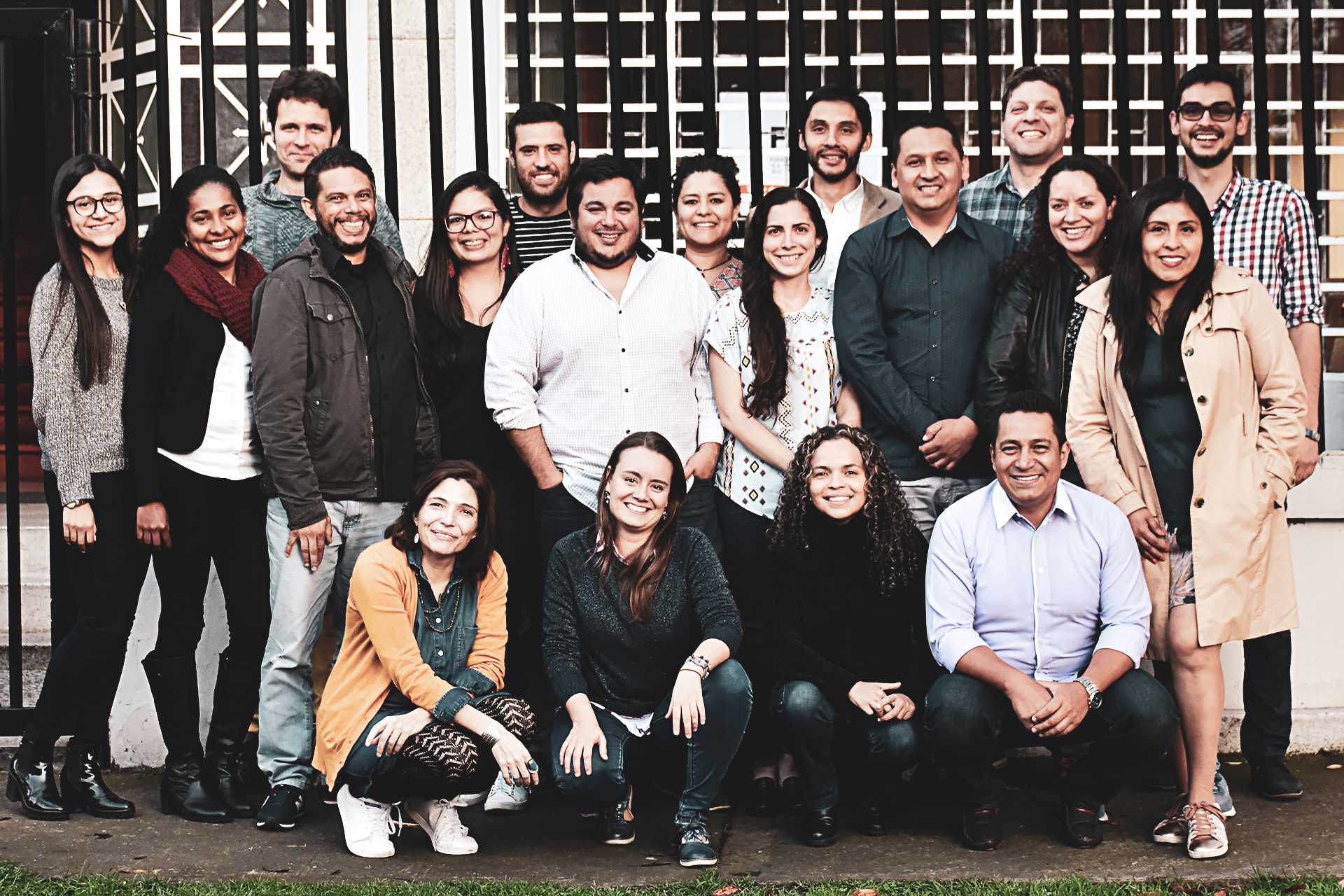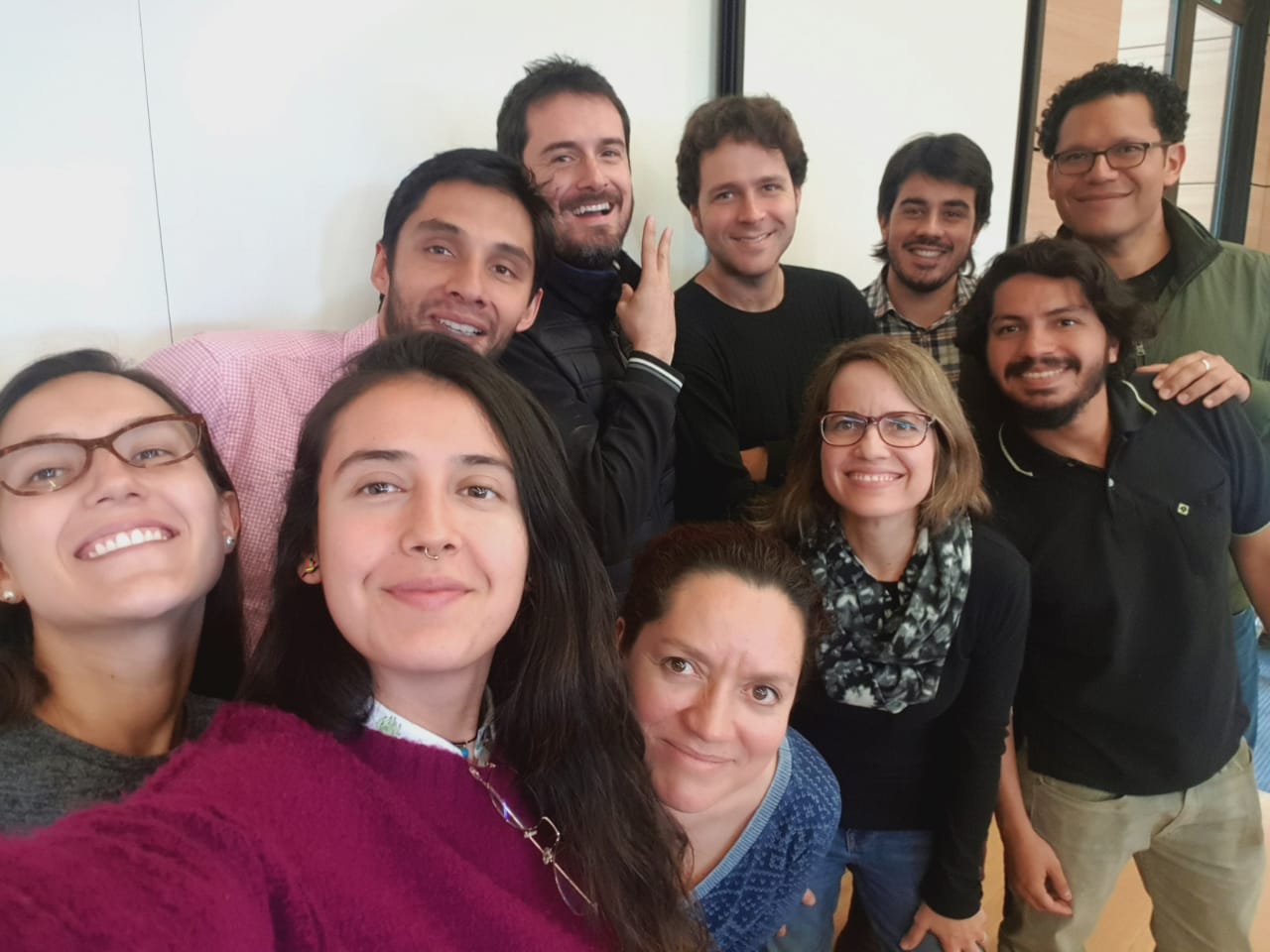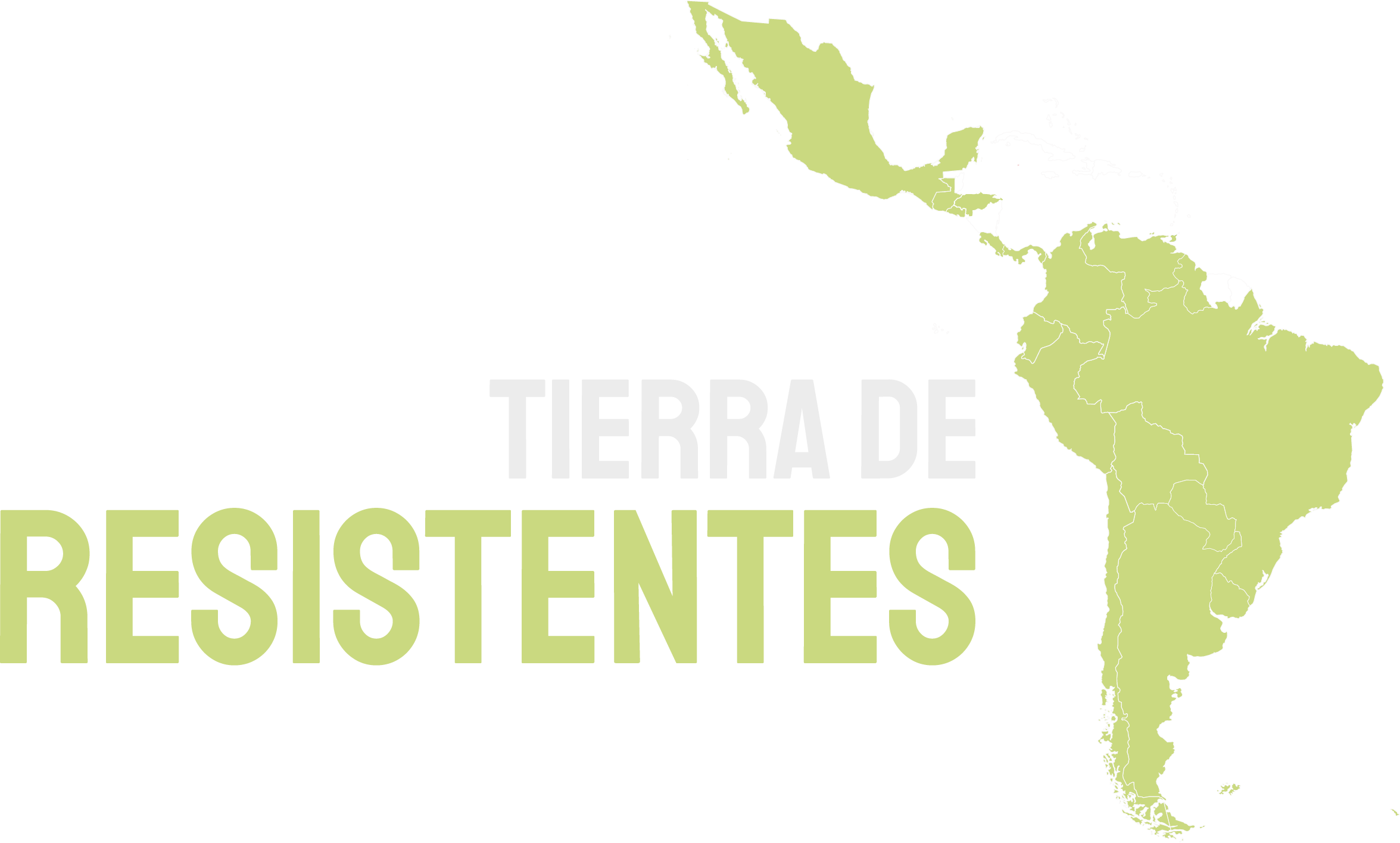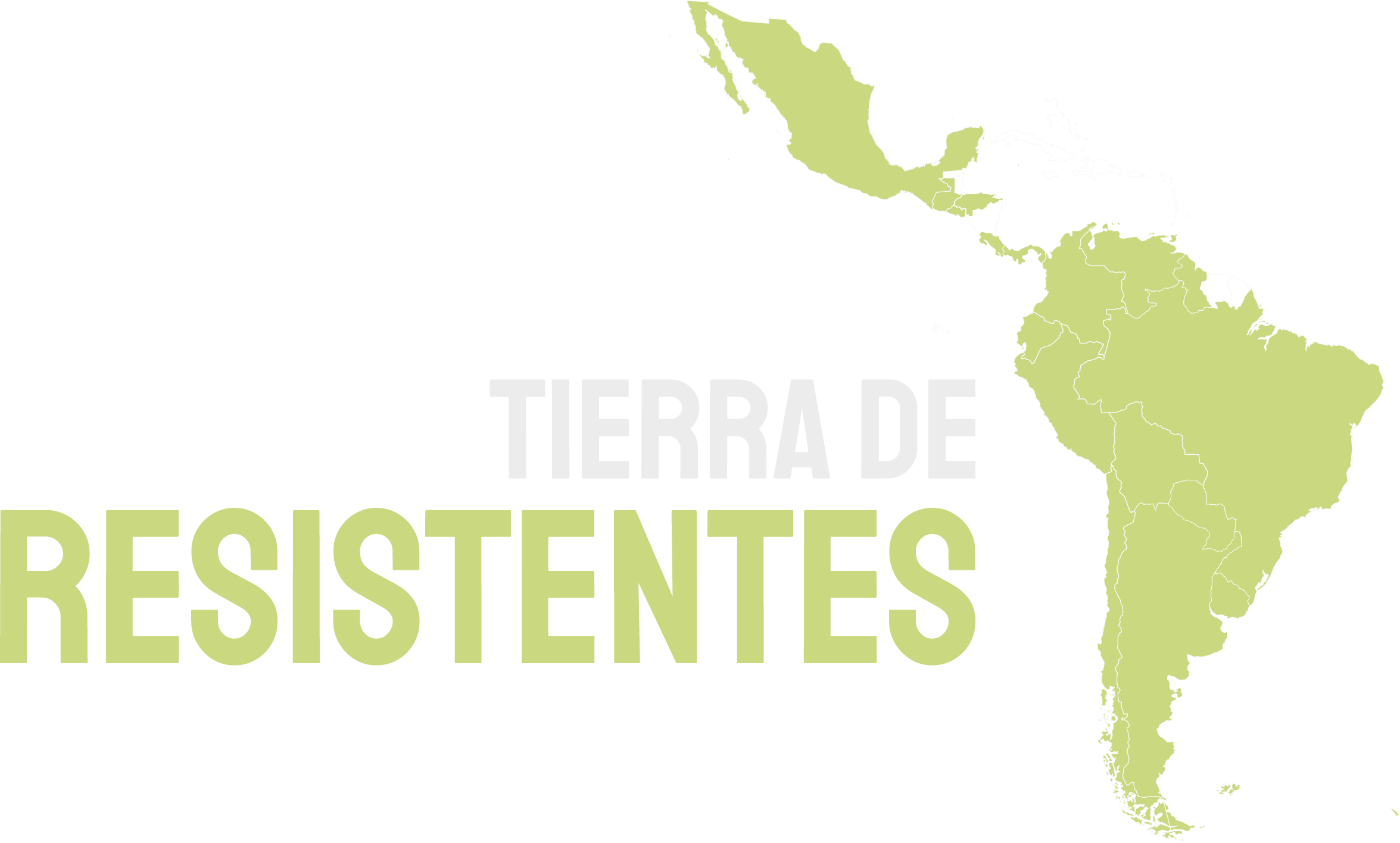Sobre el proyecto
Land of Resistants is a collaborative, crossborder journalistic effort to investigate episodes of violence against leaders and communities in Latin America who have devoted their lives to defending the environment.
This invisible reality, which has led to more than 500 murders in the region over the last decade, is the focus of this project led by Colombian investigative journalist network Consejo de Redacción (CdR) and supported by Deutsche Welle Akademie (DW) and the German Cooperation.
Eleven countries, 29 stories
The devastation of natural resources, the approval of large extractive projects, the economic interest of criminal organizations and the inefficiency of governmental agencies have converted Latin America in a hostile location for leaders and communities who defend the environment and their ancestral territories. To document this phenomenon, a team of independent journalists, media, developers, designers, photographers and videographers got together to report in ten countries: Argentina, Bolivia, Brazil, Colombia, Ecuador, Guatemala, Honduras, Mexico, Peru and Venezuela.
More than half of our stories investigate violence against leaders in the Amazon basin, tackling interests such as mining, port facilities, oil drilling, roads, hydroelectric projects, drug trafficking and illegal logging. Sixteen of them document attacks against indigenous communities seeking to safeguard their ancestral lands, and three more recount similar efforts by descendants of African slaves. From killings and direct attacks to legal harassment and forced displacement, these communities have paid a high price for defending their rights to a healthy environment and protecting the strategic ecosystems within their lands.


Since mid November 2018, when the initial group of reporters gathered in Bogota to define which stories we would report in each country and the narrative lines that would connect them, our team of 45 reporters, photographers, videographers and data journalists established the editorial criteria for the project and a methodology to build national databases that would allow us to establish the universe of people who have suffered this violence. Descarga la relatoría del taller.
Methodology
Our investigation lasted had three separate journalistic phases, including reporting, data gathering and story production.
- Collecting information: The information to build the database was obtained through information requests to a number of state agencies, press archives, public databases and social organizations. These were the initial resources to build a database comprising 2,367 cases and spanning 11 years (2009-2019). Its analysis allowed us to understand violent dynamics that strengthened our reporting work on the ground.
- Fieldwork: Reporting was carried out either in the places where the main events of each story occurred or, in some cases where there were difficult security conditions, where the affected communities settled. The audio, video, photo and multimedia content invite the reader to a closer and more human experience than a large amount of data otherwise would.
- Verification: All the stories were edited at least three times, with the seven stories from Colombia undergoing an additional process of fact checking and legal review. At the same time, the databases were processed by a team of data journalists and developers dedicated exclusively to the task: from collecting and cleaning data to the verification of sources of information and the visualization of its results.
Database
The database of Land of Resistants seeks to establish the approximate universe of leaders and communities that have suffered episodes of violence. More than names, each record documents a story and a reality.
The editorial team of each country was autonomous to establish whether a person or community exercised an environmental or territorial defense leadership, based on the definitions agreed upon during our collective workshop. Our work was guided by the work many international organisms and organizations on human rights defenders.
- United Nations: According to the Special Rapporteur on human rights defenders, Michel Forst, they are “individuals and groups who, in their personal or professional capacity and a peaceful manner, strive to protect and promote human rights related to the environment, in particular, water, air, land, flora, and fauna. Environmental and land rights are interrelated and often inseparable.
- Escazú Agreement For the innovative Latin American regional agreement, which was opened for signatures in September 2018 and until April 2020 already had 8 of the 11 ratifications needed to enter into force, they are “the people, associations, organizations or groups that promote the protection of the environment (and) defend human rights in environmental matters”.
- Non-governmental organizations such as Global Witness: For NGOs documenting these episodes of violence, such as Global Witness, it is “someone who takes peaceful action, voluntarily or professionally, to protect environmental or land rights (and who) are often ordinary people who may well not define themselves as ‘defenders’ (but) often face political, commercial and criminal interests, who conspire to steal their natural resources”.
Given that there are no reliable or consolidated databases on the problem of violence experienced by environmental leaders in any of the countries covered, each editorial team turned to countless diverse sources, including state human rights entities, social organizations (environmental, legal, religious, indigenous and Afro-descendent), fiscal files and individual leaders. All the journalists complemented and verified the situation of each leader with reporters.
The fragmented and dispersed nature of the information was one of the major obstacles. The editorial teams carried out a rigorous process of selecting the names of social leaders who were victims of violence, to establish their environmental leadership. In many cases, state agencies did not respond in time to requests for information or their information was deficient.
Consulte aquí la ficha técnica de la base de datos general y la ficha técnica de la base de datos de Brasil.
We would like to give additional thanks to the support of
The Pulitzer Center on Crisis Reporting and the Rainforest Journalism Fund, Organized Crime and Corruption Reporting Project (OCCRP), the European Union, the Sociedad Peruana de Derecho Ambiental (SPDA), Derecho, Ambiente y Recursos Naturales (DAR), Fundación Pachamama and Fundación para la Libertad de Prensa (FLIP).













